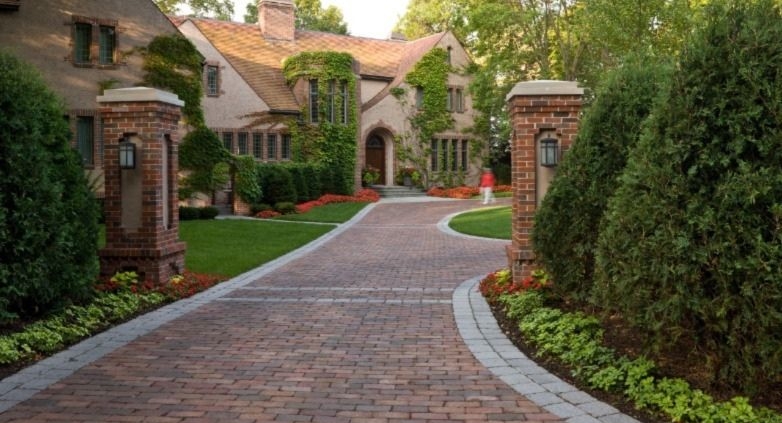Green Driveway – 8 Eco-friendly and Sustainable Options
Exploring the concept of a green driveway is becoming increasingly popular among environmentally conscious homeowners. This innovative approach to driveway design emphasizes the use of sustainable, eco-friendly materials and techniques, aiming to reduce environmental impact while maintaining aesthetic and functional qualities.
When considering a driveway upgrade, green driveways offer an array of benefits beyond their positive environmental impact. By choosing options like permeable pavers or other eco-friendly materials, you not only contribute to a healthier planet but also potentially increase your property’s value and reduce maintenance needs. These driveways are designed to manage water runoff effectively, complementing your home’s landscaping while supporting sustainable living practices.
If you’re weighing up whether this type of driveway is the right fit for your home, our detailed guide is here to help. We will explore the diverse range of materials available, their installation processes, and the broader benefits they bring. Keep reading to learn how making the switch to a sustainable driveway option can be a wise long-term investment for your home and the environment.
What Is A Green Driveway?
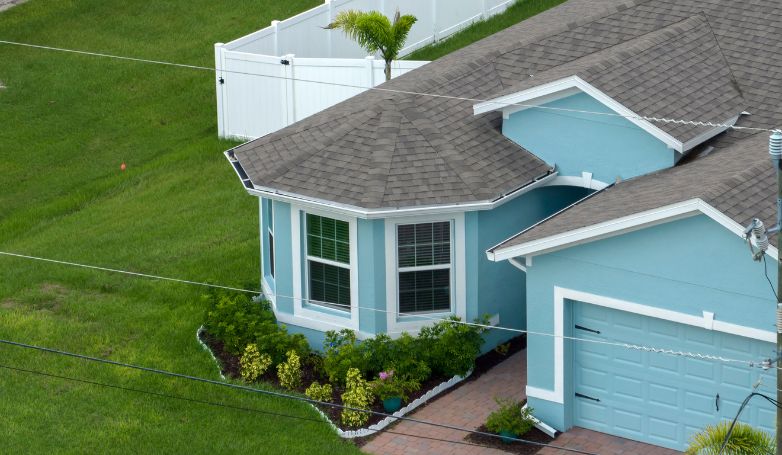
Green driveways, serving as an innovative and eco-conscious alternative to conventional asphalt or concrete, predominantly feature grassed or stabilized permeable gravel surfaces. These environmentally friendly solutions extend beyond driveways, finding applications in pathways, public walkways, and parking areas.
Environmental Benefits of Permeable Design
The key characteristic of these permeable surfaces lies in their ability to facilitate water percolation, enabling the natural absorption of water into the subsoil. Beyond providing cooling and hydration to surrounding vegetation, this process actively contributes to efficient stormwater management by minimizing runoff. This dual function showcases the environmental advantages of green driveways, making them a compelling choice for those seeking sustainable landscaping solutions.
8 Different Green Options For A Sustainable Driveway
As we said before, there are many options to choose from when it comes to green driveway materials. Let’s take a look at a few of the most common.
1. Permeable Pavers
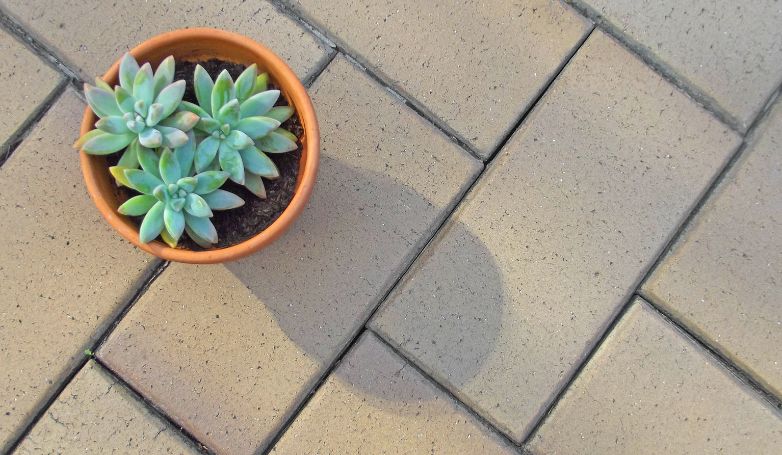
Permeable pavers are gaining prominence as an environmentally conscious choice for constructing driveways. Characterized by their ecological attributes, these pavers are predominantly crafted from recycled plastic, contributing to a notably reduced environmental footprint during the production process. Additionally, alternative materials like paving stones, pervious concrete, and porous asphalt can also be employed in the fabrication of permeable pavers, further diversifying the sustainable options available for driveway construction.
2. Crushed Concrete
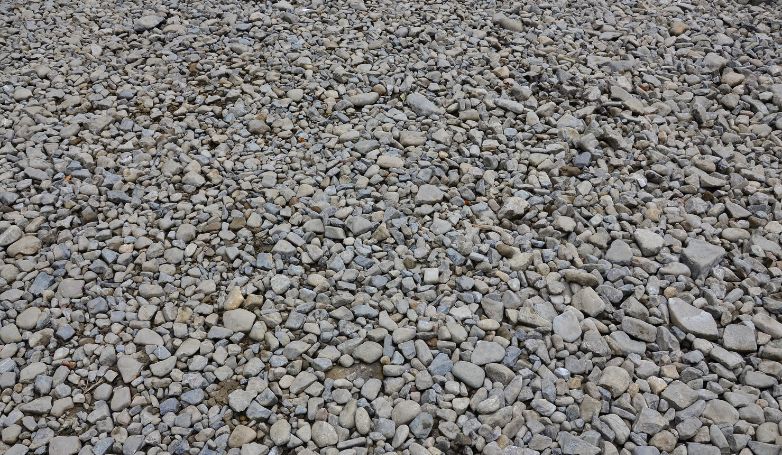
While crushed concrete certainly isn’t a natural material, there are many homeowners that swear by it for driveway use. The beauty of crushed concrete is that it allows for water runoff, draining nutrients into the surrounding soil to create carbon dioxide.
It’s also very sustainable in that you can get it from just about any demolition site. You’re essentially using material that would have likely gone to waste otherwise.
Crushed concrete, sourced from pavements, sidewalks, and building foundations, presents a sustainable option for constructing driveways. By utilizing crushed concrete, homeowners can achieve a driveway aesthetic reminiscent of traditional concrete, but with an added environmentally friendly touch. The permeable nature of this material contributes to the creation of a green driveway, allowing for better water drainage and reduced environmental impact.
3. Natural Stone Pavers
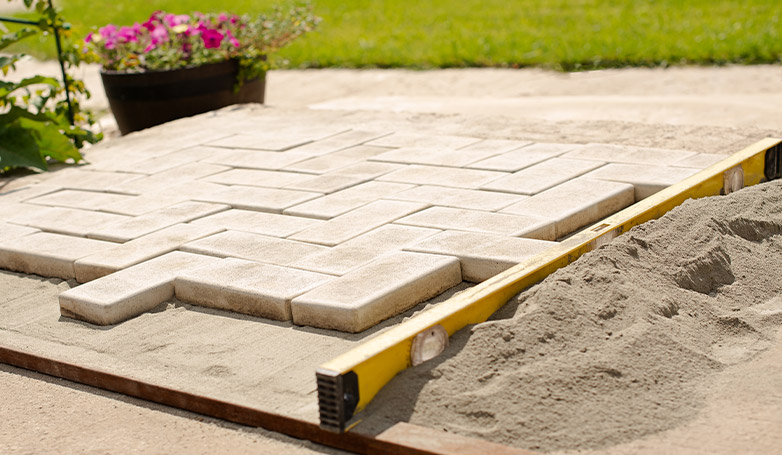
By using natural stone pavers on your driveway, you can add a bit more natural character. You can often buy natural stone from quarries, which is more sustainable, as it uses less CO2 production.
Depending on how you set your natural stone pavers up, you can often allow water to run between your pavers, soaking into the surrounding soil. Take a look at the different types of natural stone to find one that fits your aesthetic.
4. Sandstone Bricks
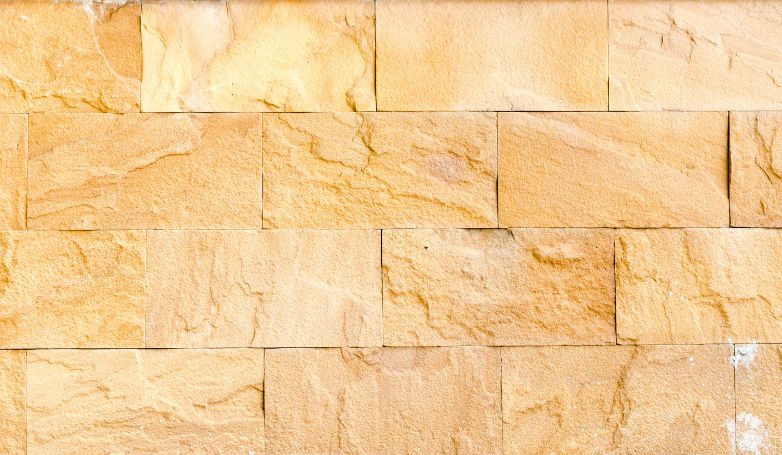
A sandstone brick driveway is a unique way to add character to your property. Sandstone is one of the nicest-looking natural materials. We get sandstone when storms or inclement weather pressurize small bits of sand into granular layers. The end result is a stone substance, which paving experts will often cut into bricks for use in building projects.
The beauty of sandstone bricks is that they are porous yet durable. You can easily customize them to fit the appearance of your driveway, cutting them into different shapes and seeking out the best earthy tones to accentuate desert-style architecture and landscaping.
Plus, sandstone bricks hold up for a very long time, similar to concrete or traditional bricks.
5. Porous Concrete
If you want the look of a traditional driveway without making a larger carbon footprint, you can check out porous concrete materials. Porous concrete reduces water runoff, and you don’t need as much of the material to fill the entire space of your driveway.
Not only can it help the wildlife in your neighborhood thrive, but it is also much less harmful to the environment from a production standpoint.
For homeowners within Homeowners Associations (HOAs), porous concrete emerges as an ideal recommendation. This material allows residents to maintain the curb appeal associated with traditional concrete driveways while aligning with HOA guidelines on sustainability. By opting for porous concrete, residents can seamlessly blend aesthetic preferences with eco-conscious choices, ensuring their driveways remain both visually appealing and environmentally responsible—an excellent solution for those seeking a sustainable and HOA-compliant green driveway.
6. Porous Asphalt
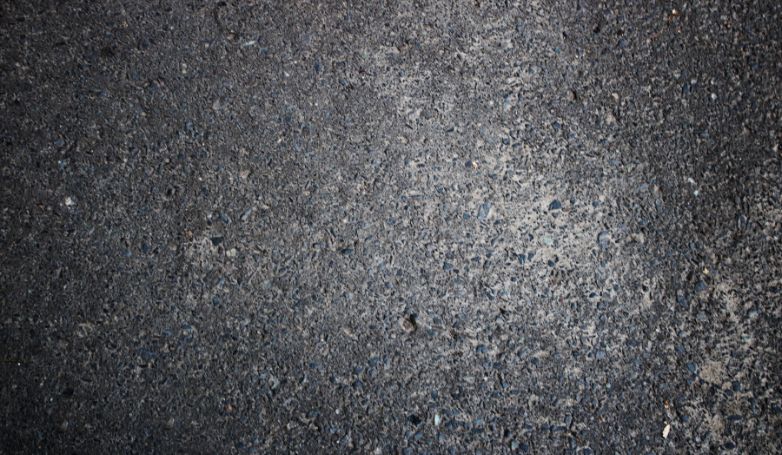
If you’re dealing with a long driveway that has tons of water runoff, you might consider looking at a material like porous asphalt. The great thing about this material is that it allows rainwater to seep through and into the soil underneath. This soil, if left underneath regular asphalt, would suffer from dryness.
Using porous asphalt allows the water cycle to continue.
Traditional asphalt typically has around 3% of void space, which only allows a little bit of water to run through at a very slow pace. Porous asphalt alternatives, on the other hand, have around 16% of void space. With a porous asphalt alternative, you can make your driveway five times better for the environment.
7. Local Gravel
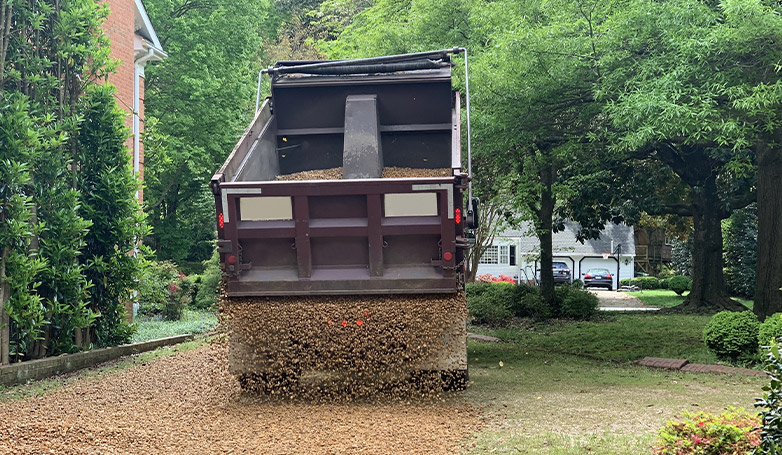
Local gravel is an excellent material for transforming a driveway. When you get your gravel locally, you don’t support or fund international transport, which is one of the main producers of fossil fuels.
Opting for eco-friendly gravel for your driveway not only benefits the environment but also supports the local economy. Money spent on this sustainable option circulates back into the community, creating a truly green driveway that’s a win-win for both your property and the broader community.
8. Hempcrete Bricks
In a recent construction industry breakthrough, the idea of hempcrete bricks was born. There are many things to love about hempcrete bricks, including the fact that they are much easier to transport because of their lightweight character.
One of the other great things about hempcrete bricks is that they absorb atmospheric CO2, even once they are made into bricks. Essentially, by installing hempcrete bricks into your property, you get rid of CO2 around your property, all while supporting an industry that is at the forefront of creating greener alternatives to construction materials.
These manufacturers will often use lime-based binders to shape hempcrete into bricks for use, giving them added durability that lasts for years after laying. This is one of our absolute favorite green driveway options and definitely one of the most unique.
The Benefits Of An Environmentally Friendly Driveway
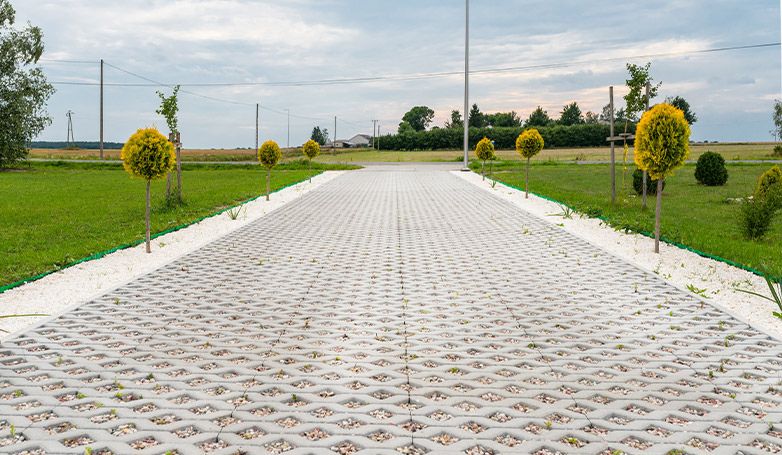
Green driveways can help prevent several problems. Let’s take a look at some of the ways they might benefit your home.
Flood Deterrent
If you’ve ever had a standard, impermeable driveway made of concrete or asphalt, then you’ve probably had to deal with all of the problems that arise from them, including erosion, washouts, flooding, and overall surrounding damage that can come with inclement weather and everyday use.
A sustainable driveway lets rainwater soak into the soil, preventing floods. This is especially advantageous for sloped driveways, where eco-friendly options shine, offering a practical solution for a green driveway.
Durability
Eco-friendly driveways often provide durability than standard asphalt or concrete driveways can’t. You won’t have to worry as much about breakage or stains, and they’re often easy to maintain. This makes eco-friendly driveways a great long-term investment.
Reduced Heat
By nature, eco-friendly driveway materials, such as permeable stone driveway tiles offer much better heat reduction compared to other types of driveway materials. Just look at the asphalt, which absorbs and emits lots of heat, especially when it’s in a hotter climate.
When you have an eco-friendly driveway, you’ll likely even be able to walk around barefoot during the summer without hurting your feet!
Versatility
Environmentally friendly driveways are very versatile. There are so many options to pick from, most of which are relatively easy to install. You can build eco-friendly driveways in many shapes and sizes, as well as on inclines and declines.
Green Driveway Cost
| Aspect | Cost Range (per square foot) |
|---|---|
| Permeable Pavers and Recycled Materials | $4.50 – $8 |
| Direct Installation on Suitable Soil | Around $3 |
| Paving Stones | $4.50 – $8 |
| Pervious Concrete | $7 – $13 |
| Porous Asphalt | $8 – $30 |
| Professional Installation and Soil Prep | (Varies by material) |
| Long-Term Value Assessment | Lower maintenance costs over time, positive environmental impact |
Creating a green driveway involves thoughtful consideration of both environmental impact and budgetary constraints. The cost of implementing an eco-friendly driveway is a multifaceted aspect. It hinges on material choices, soil conditions, and additional factors. Here, we break down the various components influencing the cost, providing valuable insights. This will help you make informed decisions, aligning your sustainable aspirations with financial considerations.
Permeable Pavers and Recycled Materials
When opting for permeable pavers made from recycled materials, the cost of your green driveway may fall within the range of $4.50 to $8 per square foot. This category represents an eco-friendly choice that aligns with sustainability goals, contributing to a reduced environmental impact.
Direct Installation on Suitable Soil
For those fortunate enough to have soil conditions conducive to direct installation without additional layers, the cost can be notably economical. It has the potential to lower to around $3 per square foot. This budget-friendly alternative underscores the importance of assessing your property’s soil characteristics before deciding on the driveway construction approach.
Additional Material Options: Paving Stones, Pervious Concrete, and Porous Asphalt
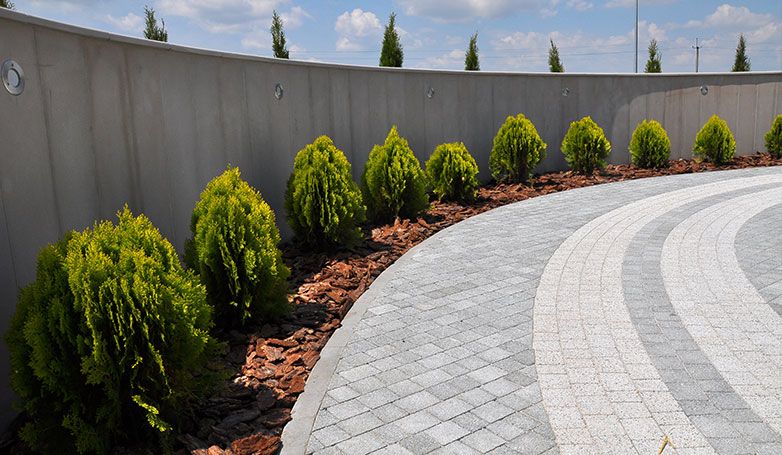
Consider exploring alternative materials like paving stones, pervious concrete, and porous asphalt, each with its own associated costs. While paving stones may fall within the $4.50 to $8 range, pervious concrete and porous asphalt might offer distinct advantages, contributing to the overall versatility and aesthetic appeal of your green driveway.
Professional Installation and Soil Preparation Costs
It’s essential to factor in professional installation costs, which can vary based on the complexity of the chosen material. Additionally, consider any expenses associated with soil preparation. Understanding these additional costs will provide a more comprehensive view of the overall budget required for implementing a sustainable and visually appealing green driveway.
Long-Term Value Assessment
Beyond the initial costs, assess the long-term value of your investment. Green driveways often result in lower maintenance expenses over time, contributing to cost savings in the future. Furthermore, consider the positive environmental impact, making your green driveway not just a financial investment but a contribution to sustainable living.
Final Thoughts – Finding the Right Green Driveway Option For Your Home
We hope that you now have a better understanding of the available eco-friendly materials and green driveway options. There are so many great solutions to upgrade your property while maintaining sustainability.
If you’re looking for a paving company to help you construct your dream driveway, make sure to check out our local directory of top-notch paving companies. For other expert advice regarding paving, head on over to our blog.

